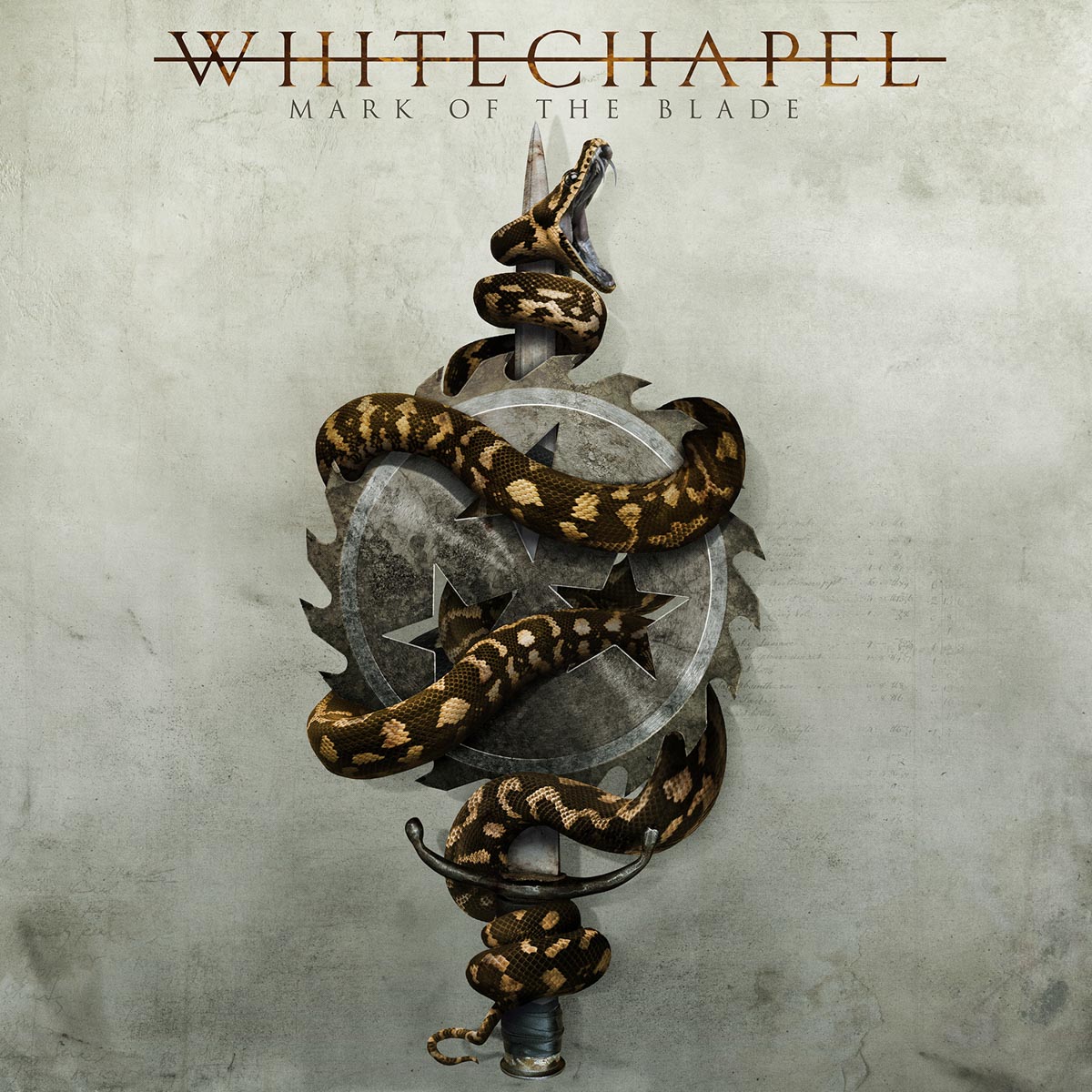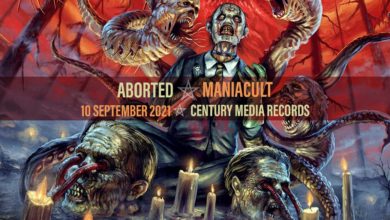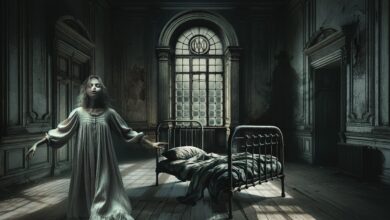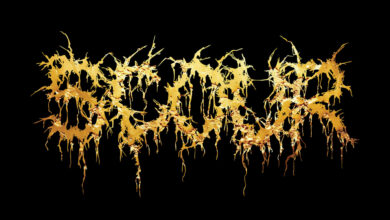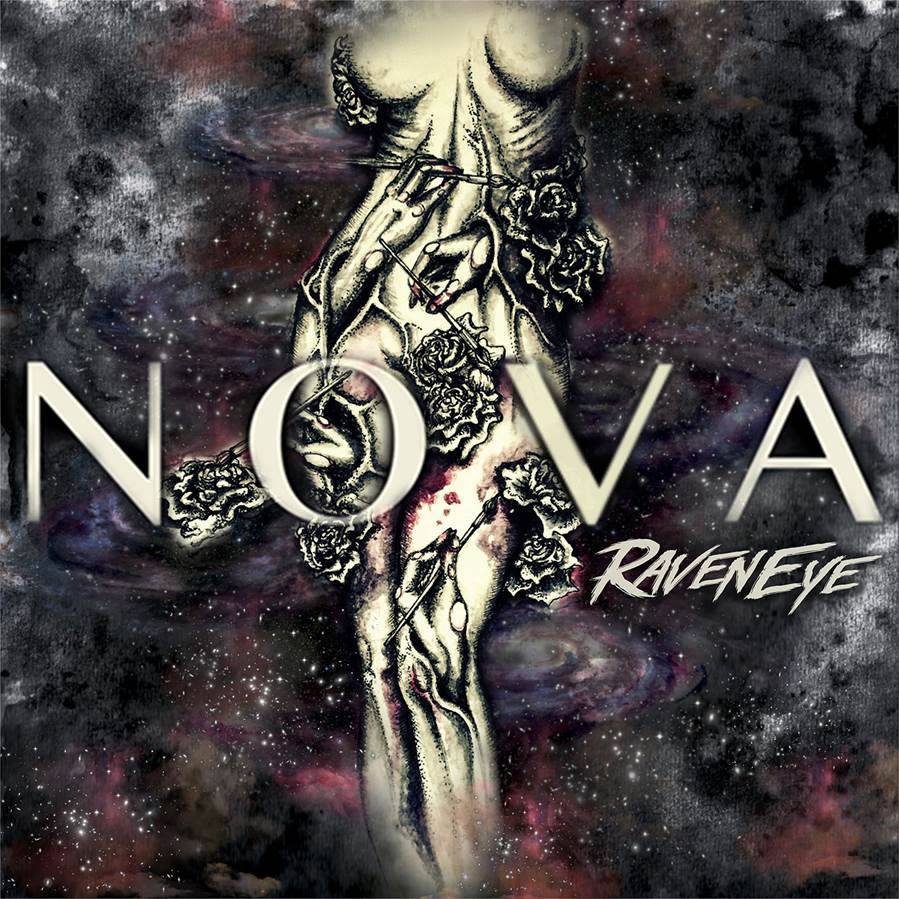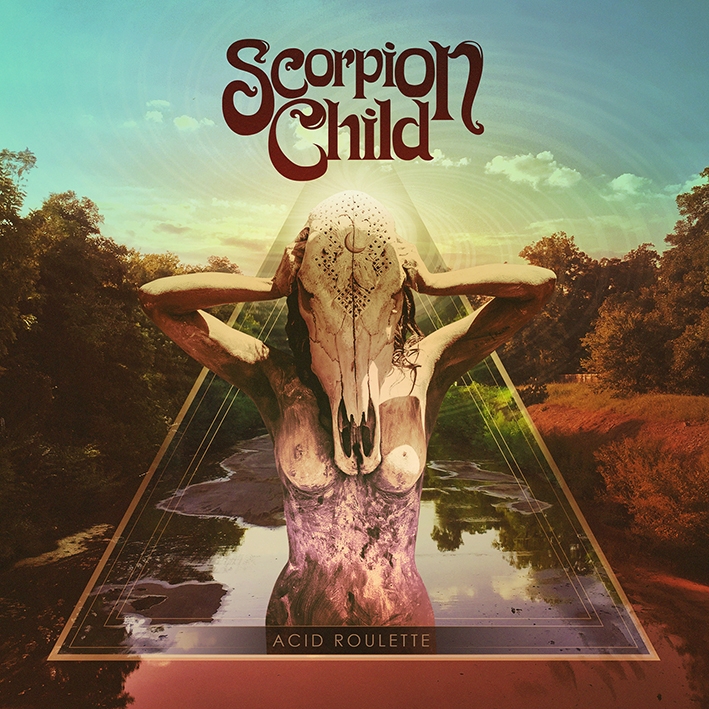 When they debuted with a first-person concept album about Jack the Ripper titled The Somatic Defilement in 2007, Whitechapel (named after the district in East London that Jack the Ripper terrorized) were quickly pegged as one of the rising stars of the deathcore scene, and maintained their popularity up until 2014’s Our Endless War. Like any album that offers a shift in style – in this case metal-core, but with a distinct emphasis on metal and hardcore as separate styles – it polarized many fans. For those looking for a return to their old tricks, their sixth album, Mark of the Blade, will be a disappointment. Not only do Whitechapel commit even more heavily to more traditional metal, they do so with an ear for more melody this time around. Only two songs feature “clean” vocals, but all of the tracks here are far more akin to Iowa-era Slipknot’s heavy moments than to Whitechapel‘s own early work. That said, for those who enjoyed Our Endless War, Mark of the Blade does everything that album did well, only better. The hooks are bigger, the riffs have room to breathe, making the heaviest moments even more punishing, and the riskiest songs are the ones with the biggest payoffs.
[columns]
[column size=”1/3″]
When they debuted with a first-person concept album about Jack the Ripper titled The Somatic Defilement in 2007, Whitechapel (named after the district in East London that Jack the Ripper terrorized) were quickly pegged as one of the rising stars of the deathcore scene, and maintained their popularity up until 2014’s Our Endless War. Like any album that offers a shift in style – in this case metal-core, but with a distinct emphasis on metal and hardcore as separate styles – it polarized many fans. For those looking for a return to their old tricks, their sixth album, Mark of the Blade, will be a disappointment. Not only do Whitechapel commit even more heavily to more traditional metal, they do so with an ear for more melody this time around. Only two songs feature “clean” vocals, but all of the tracks here are far more akin to Iowa-era Slipknot’s heavy moments than to Whitechapel‘s own early work. That said, for those who enjoyed Our Endless War, Mark of the Blade does everything that album did well, only better. The hooks are bigger, the riffs have room to breathe, making the heaviest moments even more punishing, and the riskiest songs are the ones with the biggest payoffs.
[columns]
[column size=”1/3″]
Album Title: Mark of the Blade
Release Date: 24 June 2016
Label: Metal Blade Records
Opener “The Void” is fairly safe, but that doesn’t mean it isn’t mean. The main riff is a buzzing, unsettling, and oddly radio-ready monster, but Phil Bozeman’s vocals are at their nastiest here. It’s still not really a deathcore vocal, but it’s a downright furious, gargling roar, very similar to what Winston McCall sounds like on the latest Parkway Drive record, Ire. The outro breakdown is satisfyingly heavy without abandoning melody, and there’s a classic thrash solo thrown in for kicks. The real highlight, though, is drummer Ben Harclerode. His drumming on this entire album marks him as one of the best metal drummers alive, and “The Void” is a perfect example of why. He can effortlessly plow through speedy double-kick, thunderous fills, hardcore gallops, and big, arena-rock beats, often all within the same stanza. If you’ve ever wanted to hear Chris Adler from Lamb of God but with a decent snare tone, this is probably the closest you’ll ever get. The title track and lead single is next, and it’s a statement that Whitechapel are not turning back. The riff is once again heavy but catchy (think early KoRn), and the vocals are just a touch heavier than anything you’re likely to ever hear on the radio, but they’re the clearest Phil Bozeman has ever sounded, and even when he dips into a near pig-squeal, the lyrics are easily understandable. “Elitist Ones” rides a dive-heavy riff that could pass for Godsmack (in this case, actually a compliment), and the verses and choruses are a perfect, mood-setting sludgy dirge… but the lyrics are an embarrassing, ham-fisted mess. They try to be anthemic, but they come off as middle school poetry.
“Bring Me Home” is the most daring song here, and in case you’re worried, it’s also one of the best. The music is easily the softest thing Whitechapel have ever done, a chiming, atmospheric evil lullaby, but even that is overshadowed by the first appearance of Phil’s anticipated/dreaded clean vocals, and his voice is… well, it’s beautiful. Not angelic, by any means, but hypnotic. Risk of blasphemy aside, it instantly reminded me of two voices: the tone of Maynard James Keenan and the inflection and accent of Corey Taylor (the softest moments reminded me a LOT of “Snuff”). Even if you feel betrayed by Whitechapel abandoning their deathcore roots, give this song a chance. Even if you have to think of it as a completely new band, it’s worth it to hear this song. Following track “Tremors” is another standout, with a massive main riff that trades in djenting for a relentless low-pitched warble right out of the Deftones playbook. Combined with the vicious vocals (and a perfectly executed breakdown at the climax), it’s not just a great song, it’s a textbook example of what Whitechapel need to do moving forward. “A Killing Industry” is another rager. Harclerode’s drumming is downright claustrophobic, the breakdown is once again flawless, and the verse combo of hardcore chugs cutting through a buzzsaw, Jerry Cantrell-worshipping lead riff pair wonderfully, but once again the lyrics are hilariously bad. Not quite as cringe-worthy as “Elitist Ones,” but still clumsy enough to be distracting. “Tormented” follows that trend, with another killer droning Deftones-y riff (this time with a touch of djent to it too), but lyrics that are so painful they take attention away from the badass music.
 “Brotherhood” at least breaks that trend, which is easy since it’s an instrumental. A classical acoustic piece leads into a sinister riff (and once again, phenomenal and very understated drumming). An early solo borrows heavily from Fallujah, with the lead guitar being tuned to sound completely out of place and high-pitched. This morphs into a harmonized guitar duet that lends the song a Maiden-meet-A7X vibe. “Dwell in the Shadows” boasts yet another killer riff, perfectly blending groove and aggression, but this time it’s the vocals that let the song down a little. They’re perfectly competent, they just lack the passion a lot of the prior tunes had. It feels kind of like Phil wasn’t as into this song for some reason, because that’s the only explanation I can give for this seeming so bland. Mark of the Blade closes strong with the duo of “Venomous” and “Decennium.” “Venomous” is the angriest song on display here, and also the best. The speedy riff is different and memorable, the heaviness is off the charts (STILL not deathcore, but wait for that first bass drop… yes, there’s more than one), but the highlight here is the vocals. They’re the roughest on the album, but the highlight is, of all things, a breathless verse where the instruments drop to the background and Phil nearly acapella scream-raps his way through a lightning fast tongue-twister. It’s like Attila with balls and better breath control. And finale “Decennium” ends things by marrying the massive headbanging riffs and roaring vocals with a clean, pretty chorus. The hook is a little iffy, but the atmosphere is perfect for a closing song, alternating between urgent rage and drifting peace, and fading out with an acoustic outro is a nice touch reaffirming that Whitechapel are done caring about purists.
“Brotherhood” at least breaks that trend, which is easy since it’s an instrumental. A classical acoustic piece leads into a sinister riff (and once again, phenomenal and very understated drumming). An early solo borrows heavily from Fallujah, with the lead guitar being tuned to sound completely out of place and high-pitched. This morphs into a harmonized guitar duet that lends the song a Maiden-meet-A7X vibe. “Dwell in the Shadows” boasts yet another killer riff, perfectly blending groove and aggression, but this time it’s the vocals that let the song down a little. They’re perfectly competent, they just lack the passion a lot of the prior tunes had. It feels kind of like Phil wasn’t as into this song for some reason, because that’s the only explanation I can give for this seeming so bland. Mark of the Blade closes strong with the duo of “Venomous” and “Decennium.” “Venomous” is the angriest song on display here, and also the best. The speedy riff is different and memorable, the heaviness is off the charts (STILL not deathcore, but wait for that first bass drop… yes, there’s more than one), but the highlight here is the vocals. They’re the roughest on the album, but the highlight is, of all things, a breathless verse where the instruments drop to the background and Phil nearly acapella scream-raps his way through a lightning fast tongue-twister. It’s like Attila with balls and better breath control. And finale “Decennium” ends things by marrying the massive headbanging riffs and roaring vocals with a clean, pretty chorus. The hook is a little iffy, but the atmosphere is perfect for a closing song, alternating between urgent rage and drifting peace, and fading out with an acoustic outro is a nice touch reaffirming that Whitechapel are done caring about purists.
You probably aren’t still reading this if you’re one of those purists, and I can’t blame you. Whitechapel have turned their backs on the genre that made them, but what they have turned to is a whole new world of possibility. If it weren’t for a nagging sense of sameness to some of the riffs and vocal parts, and some truly awful lyrics on a handful of songs (seriously, bad enough to drop the overall score an entire digit), this album would probably be an easy shoe-in for my “Best Of” list at the end of the year. As is, this is still Whitechapel‘s best album yet, if you’re willing to accept it for what it is, and isn’t.
[8/10]

